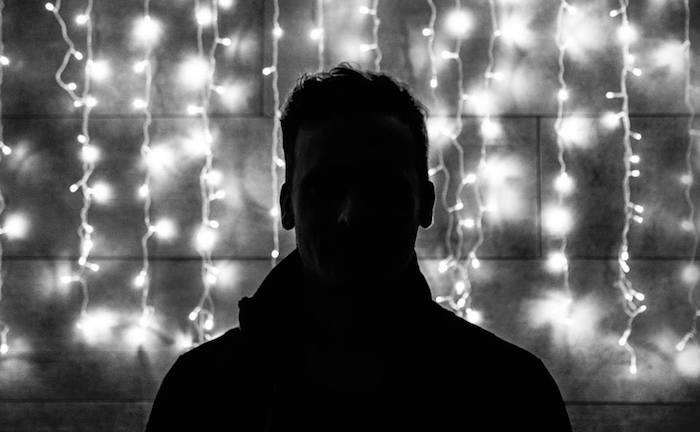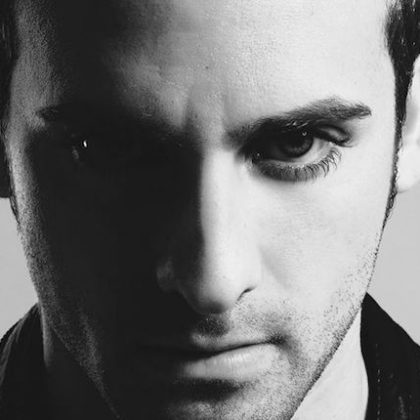Taster Peter Shows His Love for Modular Sounds on “LFO Shit”
It would be blasphemous for anyone to badmouth the LFO, seeing as it helped shape the landscape of electronic music. One person who most certainly appreciates the practice of working in these essential oscillators is Taster Peter, who has dedicated his next release to that specific type of modular sound. Scheduled to hit shelves June 17 with the help of Damian Lazarus’ Rebellion imprint, LFO Shit shows the Italian techno aficionado getting wavey in the best way imaginable.

The titular cut will speak volumes to the modular enthusiasts who don’t mind a little modern twist thrown into the mix. Wrapped up in a sheet of strange, the piece plops along a propelling, percussive flow that carries the ludic LFOs into the fore. Everything about this one makes us love mods so much more. We have the first taste of the tune ready to go below, on top of a few choice words from the man who made it all happen.
“LFO Shit” is a hat tip to modular sounds. Do you remember the first time you really appreciated the subject matter on a deep level?
Yes, definitely! My first serious approach to modular stuff was around 18 years old. At that time, I was using Sony Acid software for the recording and editing of my first audio experiments. I had a friend who was really into these kind of instruments, and he lent me a TR-808, a TB-303 and a Korg Triton. Afterward, we started experimenting with these tools, which remained for quite some time in my studio. I still remember all those nights passed alone in the studio playing with that stuff… good times!
As for the track itself, how many versions did you run through before reaching the final one?
Just one straight version. I’m not the kind of guy who creates many versions of a track with the goal to choose the best one for my tastes. I usually like to reopen the project many, many times, doing the final touches until I am 100 percent satisfied with it. Then, when I’m totally ok, it’s all about exporting, listening carefully and dancing with it! 🙂
It’s your debut on Rebellion. How did the EP make it into the hands of Damian Lazarus, and did he request any tweaks to be made before signing it on, or was it a straight shot?
I’m a huge fan of Damian and his label from my very beginning in this business. When I finished this EP, I felt like maybe it could be a good fit for him, so I fired him the demo. After a week, I received his answer that he played the records in his party in Miami with huge reactions, and he wanted to release it on his label. It was great!
What do you admire most about the imprint, and how does it align with the intent of your overall vibe?
Crosstown Rebels and Rebellion are synonymous with good-quality music, always. I really love the versatility of the label and its elegant way to pass from one genre to another, but always keeping its own basic musical concept as the underlying theme for all the releases—this is exactly what I’m trying to do with my music.
In all my performances, there are always a few records from this label—that’s why, for me, it’s really something special to be on board here!
You’re a multi-instrumentalist with an extensive background performing with a live band. Does your connection with physical instruments create a necessity for analog gear, or are you content with the capabilities of DAWs?
Yes, playing in a band for so many years has definitely opened my musical horizons, also with the approach on the instruments, but let me say that I’m not so obsessed with analog gear. I like them. I have a few bits in my studio, but I’m also a huge digital VST user. Playing physically with gear is a totally different thing, for sure; it’s like having sex with the sound. But I’m more focused on the result, and nowadays there are so many amazing VSTs that can blow down the walls of my house. So, let’s be productive in the best way with what we own!
How long did it take to adjust from the transition of playing in a six-person outfit with the Tasters to moving on to a solo project in a totally different genre?
Not so much time, but with the band, I was doing totally different music—both from a technical and conceptual point of view. I don’t know why, but I felt immediately at ease with electronic music.
In terms of performing live, how do the two worlds compare, and what’s the strongest similarity between the two?
The feelings before a show are exactly the same, although I think that the responsibility that a drummer has in a band during a live performance is very big. At the same time, the DJ is a one-man-band, so all the eyes are on you!
From my personal experience, I can say that also from a technical point of view, there are a lot of similarities. For example: My way of playing drums was always with the metronome in ears, because we had electronic parts in our songs. I find this pretty close to a DJ set, where you are following the BPM, thinking about the next track to play, with the goal to create good connections with the crowd, and letting everyone dance like there’s no tomorrow!
What’s one taste you absolutely cannot tolerate?
Right now, while I’m doing this interview, I have the toilet pipes of my house broken, and I’m waiting for the plumber to fix it. Trust me, that it is already a few days I have this terrible smell in my house—a really bad taste which I can not tolerate anymore, haha!
Follow Taster Peter on Facebook | Twitter | SoundCloud


